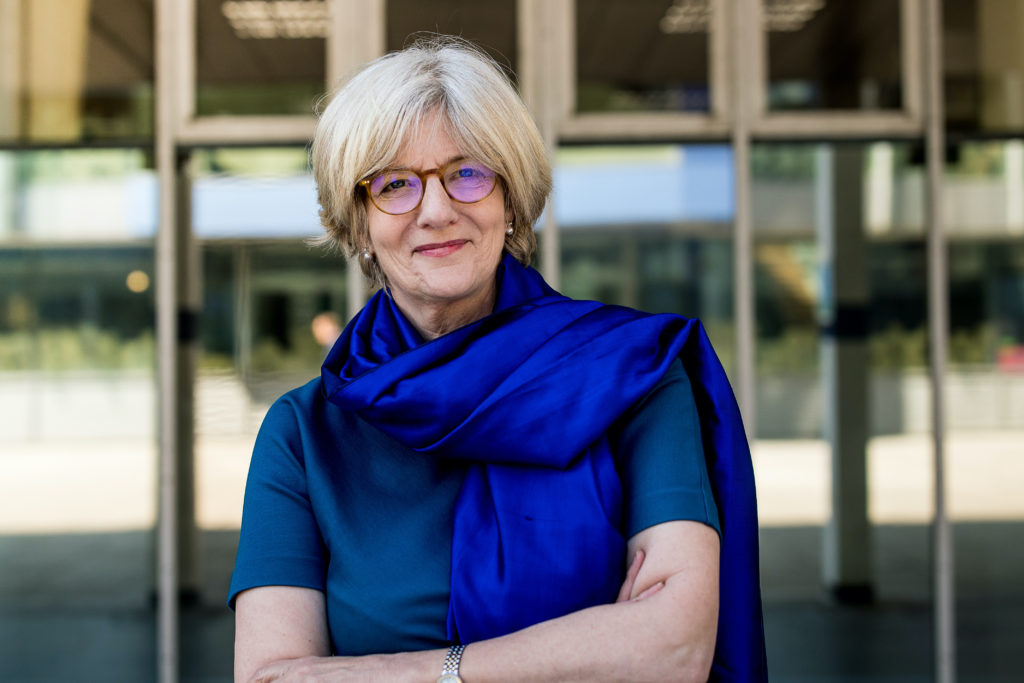Article
The UK is at risk of falling behind other countries

If the UK can join the dots between the world-class assets and resources in its possession, we can drive the SME sector, Veronica Hope-Hailey thinks.
Roughly 35 years ago, when professor Veronica Hope-Hailey had become a new mum for the first time, she remembers reading a newspaper article about a black female opera singer whose father had told her that success would be difficult for her because of her circumstances.
“Her father had said that in spite of this, no one could ever stop her from working hard,” said Veronica, “and that really stuck with me. I remember thinking, ‘Well, I might be a woman, I might be a mother, I might have circumstances that could make things difficult for me, but no one can stop me from working hard.”
It turned out to be a snippet of wisdom that would provide the fuel for a truly incredible career, where her tenacity – as well as her obvious aptitude for research, leadership, management and academia – have propelled her to the very top. Her CV tells a story of both a highly respected leader with senior management experience in higher education and also a seasoned expert in leading and implementing change across the private, public and non-profit sectors.
Several things have spurred her on. At a personal level, the loss of her mother, father, brother and sister – “the entire rest of my family” – around the same time made her think that she would die young, and gave her the courage to seize every opportunity she was given. “It inspired me to take risks, to take every professional opportunity to work somewhere new – whether it was in China, the States, South America or Africa,” she commented.
The second thing – something that has really shaped the latter stages of her career – came in 2009, when Veronica took her first senior management job in the higher education sector and quickly came to appreciate how readily this appointment meshed together everything she had ever taught, researched or consulted in. “It’s an unusual thing for an academic to really ‘live’ the areas they research,” she added, “and the two sides just intertwined beautifully.”
She’s keen to play her part as a Be the Business Fellows programme for several reasons. “One is that it’s a way to give back – to help the UK to thrive,” she says. “A second reason is that I know from my extensive international travel on behalf of the university and consulting that we have one of the best economies in the world, as well as some of the very best universities, great R&D and some outstanding large corporations. So we have resources, knowledge and examples of good practice – and if we can join the dots between these world-class assets and resources, we can drive the SME sector.”
This is her rallying cry: if we don’t start getting better at joining everything up, the UK will start to fall behind other countries.
Veronica feels that Be the Business can help drive change by ensuring that SMEs get the right advice, knowledge and access to resources in the fastest, most accessible way possible. “It’s about giving SMEs leaders the newest knowledge so they can go faster in their development,” she explained. “And what’s new knowledge in 2020 is not what was relevant ten years ago.”
Until October 2020, Veronica was vice president for external Engagement at the University of Bath. She was also dean of the highly-ranked university’s School of Management for more than six years. She has been associate dean at Cass Business School, a professor at Cranfield School of Management and a fellow at the University of Cambridge.
Quick-fire questions
Who is or who was your business inspiration?
Paul Polman. I mean, redirecting and transforming an organisation with 185,000 people like he did in Unilever – that’s pretty good. He’s pretty inspiring and a very humble man when you meet him.
What is your personal productivity tip?
Focus on a few things, follow through, and you’ll get some performance uplift. We need to understand that all of us can only really achieve change and transformation in a few areas, because it takes a lot of time, a lot of focus, a lot of energy, and a lot of resource.
What are a couple of things that SMEs need to be watching out for?
International competition. I think one of the things that we could do for the SME sector in this country is to take them on international trips. Just show them how other countries drive their SME sector, so that UK business can learn from other countries – and also understand that the competition is coming. Because when you do travel to the Asian countries in particular there’s some really salutary lessons there about how they are driving performance.
If you’d gone down a completely different career path, what would you like to have been?
In some ways, I’d quite like to have been a detective, the sort of detectives that do psychological profiling. I always liked Adam Dalgliesh and PD James’ novels because I regard organisational problems or leadership problems as a bit like trying to dispassionately analyse what’s going on. It’s the same kind of analysis, diagnosis, trying to understand what’s going on and in my case, not who to arrest, more how to solve the problem. It’s the same sort of thing, though – understanding what makes people tick, understanding what motives they have and what their intentions are.